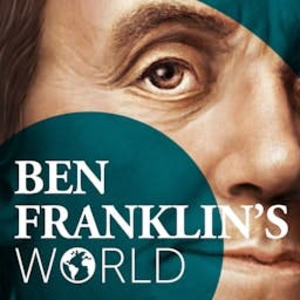
Ben Franklin's World
History Podcasts
This is a multiple award-winning podcast about early American history. It’s a show for people who love history and who want to know more about the historical people and events that have impacted and shaped our present-day world. Each episode features conversations with professional historians who help shed light on important people and events in early American history.
Location:
Williamsburg, VA
Description:
This is a multiple award-winning podcast about early American history. It’s a show for people who love history and who want to know more about the historical people and events that have impacted and shaped our present-day world. Each episode features conversations with professional historians who help shed light on important people and events in early American history.
Twitter:
@BFWorldPodcast
Language:
English
427 How States Are Planning the 250th: Commemorating the American Revolution in 2026
Duration:00:51:48
BFW Revisited: The Mayflower
Duration:00:59:35
426 Indigenous Agriculture and the Hidden Science of Native Foodways
Duration:00:52:32
425 Ken Burns' The American Revolution
Duration:00:55:14
424 Dunmore's Proclamation & the American Revolution in Virginia
Duration:01:06:04
BFW Revisited: Disruptions in Yorktown
Duration:00:59:49
423 The Forgotten Artists of the American Revolution
Duration:01:08:25
BFW Revisited: The World of John Singleton Copley
Duration:00:50:15
422 Plantation Goods: How Northern Industry Fueled Slavery
Duration:01:10:06
422: Plantation Goods: How Northern Industry Fueled Slavery
Duration:01:12:45
BFW Revisited: Origins of American Manufacturing
Duration:00:59:58
BFW Revisited: Origins of American Manufacturing
Duration:01:02:35
421 Loyalism and Revolution in Georgia
Duration:00:58:24
BFW Revisited: Loyalism in the Brtish Atlantic World
Duration:01:07:41
BFW Revisited: Loyalism in the British Atlantic World
Duration:01:10:19
420 Creating the U.S. Federal Government
Duration:01:17:45
420: Creating the U.S. Federal Government
Duration:01:20:25
BFW Revisited: Women & the Constitutional Moment of 1787
Duration:01:13:39
419 The North Carolina Regulator Movement
Duration:01:01:46
BFW Revisited: The Tory's Wife
Duration:01:03:04